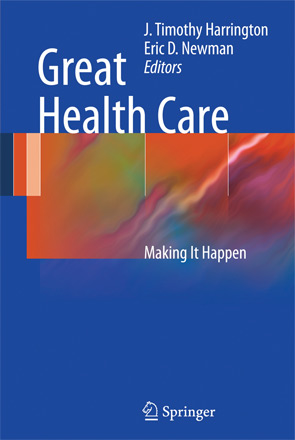
Access to Rheumatology Care
Problems with patients accessing rheumatology care are widely documented, as is true for other chronic disease specialties as well. Moreover, referring physicians’ and patients’ decisions are often suboptimal, causing a waste of limited specialty resources and further delays in diagnosis and treatment. The increasing imbalance between patient and provider numbers and the priority for early diagnosis and treatment will only worsen this problem, and increasing the numbers of providers using usual clinical processes will not correct this imbalance. Moreover, referring physicians and consultants must work together instead of blaming one another if access to and timeliness of care are to improve.
Improving referral processes needs to be addressed through testing and implementing alternatives. In Great Health Care, John J. Cush, MD, director of clinical rheumatology at Baylor Research Institute, describes his testing of various options for improving access to rheumatology care in Dallas. His insightful findings include:
- Referring physicians and patients prefer to be seen by rheumatologists to participating in various referral management programs; and
- Rheumatologists are wedded to initially providing comprehensive consultations while acknowledging that they often know what’s going on within 90 seconds of being face to face with the patient.
Dr. Cush proposes a radical change: The rheumatologist sees referred patients immediately for a brief screening visit rather than their waiting weeks for a comprehensive evaluation. Follow-up care would then be scheduled as needed with the rheumatologist or other providers, or even other specialists, and urgently if needed. As a similar example, a health system in Wales, U.K., has reported a face-to-face musculoskeletal triage program by trained mid-level providers that performs well in directing patients to timely, most appropriate care for their problems, and with a higher accuracy than decisions made by the referring physicians themselves.5 High-performing practices have tested and implemented a variety of new referral processes, none of which depend on traditional, first-come-first-served consultative processes. Such processes might be implemented easily in the evolving multispecialty musculoskeletal disease practices that include rheumatology.
Interdisciplinary Chronic Disease Management
Managing chronic disease patients and disease populations over years and decades is an increasing challenge due to exploding knowledge and therapeutic options, and the better-recognized interactions between inflammatory, vascular, and metabolic comorbidities. Great Health Care explores these challenges and provides examples of highly effective chronic disease management. We also suggest that the Patient Centered Medical Home is insufficient for coordinating systems of care through primary-care practices, as we also did in 2009.6 System-based, integrated, interdisciplinary care and coordination of care are necessary, as the ACO concept and bundled payments are beginning to incentivize. The ACGME has defined system-based care experience and continuous process improvement methods as core postgraduate training priorities. Academic and practicing rheumatologists and trainees need to learn these competencies.